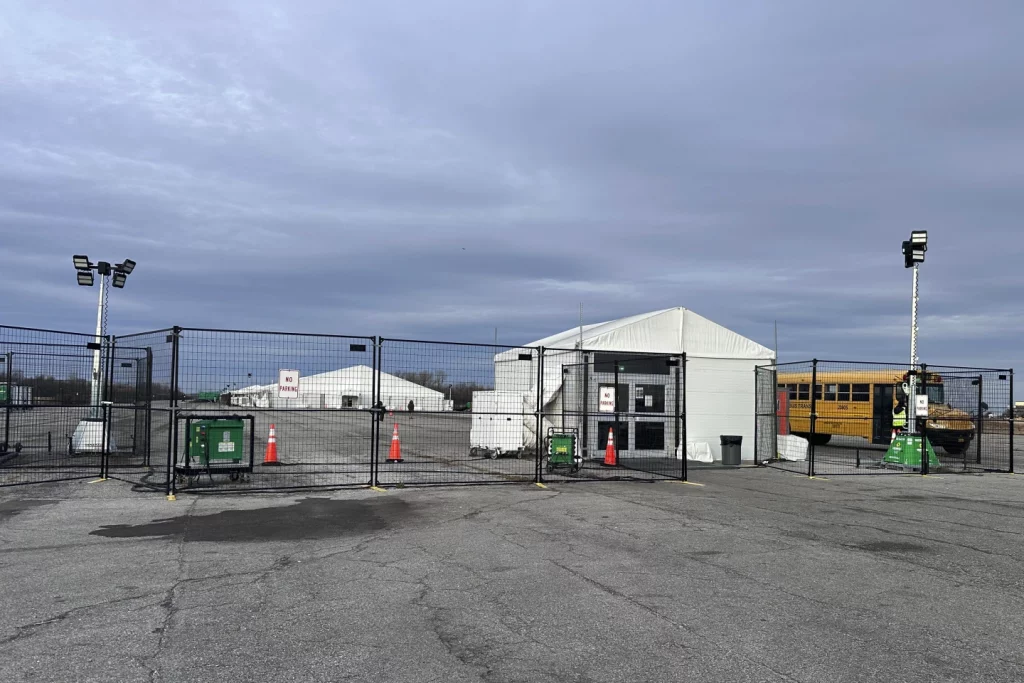For two months, 26-year-old Venezuelan migrant Natalie Zulbaran has been staying at the Stewart Hotel in Midtown Manhattan. Once a busy tourist destination near Penn Station, the 850-room hotel was converted into a migrant shelter in 2023. Today, it reflects the struggles faced by New York’s migrant and asylum-seeking communities.
As President-elect Donald Trump prepares to take office, his immigration plans are creating uncertainty. Trump has pledged to begin the largest deportation program in U.S. history on his first day in office, calling some migrants criminals during an October rally in New York. He also intends to declare a national emergency to involve the military in removing undocumented migrants and has criticized “sanctuary cities” like New York.
Despite these plans, Zulbaran remains hopeful. “I’m not worried because I think he’s focusing on migrants who cause harm,” she said. Still, she is hurrying to complete her paperwork and is ready to relocate within the U.S. if necessary, relying on her family’s savings.
New York has received over 200,000 migrants since spring 2022, when Texas Governor Greg Abbott began sending buses of migrants to challenge the city’s sanctuary status. The city has spent more than $5 billion on shelters, repurposing vacant hotels, office spaces, parks, and warehouses into temporary housing.
However, with fewer migrants arriving and the lowest number of asylum seekers in shelters in 18 months, New York City is shutting down facilities. Mayor Eric Adams announced plans to close 13 emergency shelters by June, following the earlier closure of 25 sites by March.
For migrants like Jennifer, an Ecuadorian who entered the U.S. illegally 10 months ago, these closures add to an already uncertain future. Jennifer and her family lack legal documents and have struggled to find housing. “We’ve been searching for apartments, but they ask for papers I don’t have,” she said. She fears being forced to return to Ecuador, where her family fled threats against her husband.
Critics of government spending have also voiced their opinions. Matthew, an employee at the Stewart Hotel, questioned why funding for migrants is criticized when billions are spent overseas. “These people [migrants] are great and will benefit our nation,” he said, emphasizing the positive contributions migrants can make to the U.S.
As New York adapts to these changes, the future for many migrants remains uncertain, highlighting the ongoing challenges of immigration policies and support systems.

